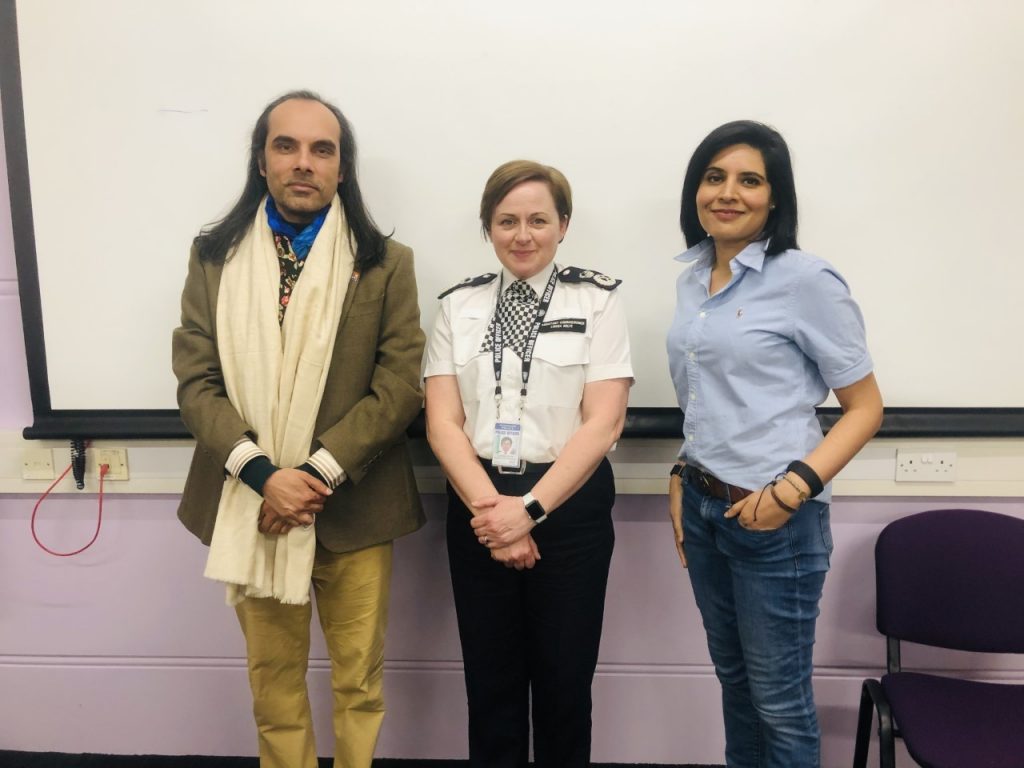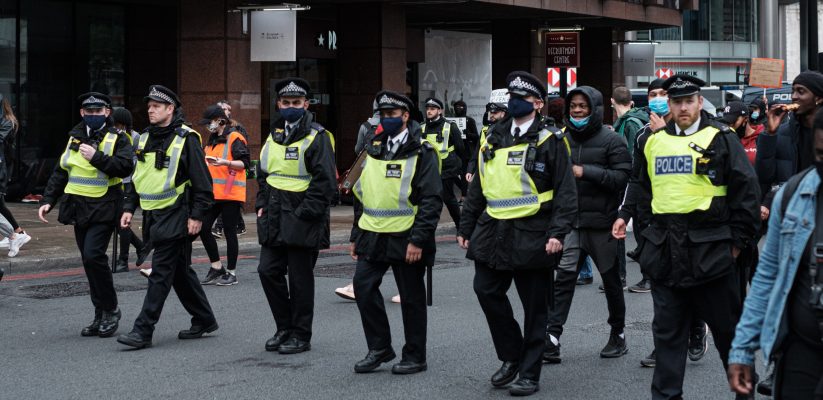Author: Dr Shamila Ahmed
What are the challenges of policing in a democratic country with a diverse population? What is, and what should be, the role of policing? Are the Metropolitan Police responsible for multicultural London facing a crisis?
Over the last few years, confidence in the Metropolitan Police has decreased. High profile cases have negatively impacted the reputation of the MET. At the University of Westminster, we hosted ‘Restoring the Values in Policing’, an event whose aim was to critically question the role and accountability of the police.
The police, as guardians of the law, have a privileged position in society. They were fundamental to the establishment of the modern state, for it was through the police that the social contract between citizens and the modern state was formed. As part of this process, ‘natural rights’ as we now know them were established through the construction of certain values and boundaries. These rights are enacted through due process and incorporate fundamental values such as the ‘right to be presumed innocent’. Such values have come to form markers of a democratic society, with policing by consent symbolising the unique surrendering of certain freedoms for the protection afforded by the police. Policing by consent is directly premised on trust and confidence in the police service.
The role of the police and their unique position in society and justice have led to it being the most researched criminal justice agency. However, it is also these very mechanisms which have led to watershed moments following events that have deteriorated the trust and confidence upon which policing rests. The first of these was the Scarman Report after the Brixton riots, which took place in reaction to mass moral panics, the overuse of stop and search powers and the racialisation of mugging. These moral panics were so destructive that the 1982 British Crime Survey was the first to demonstrate that the fear of crime and mugging was far greater than the risk. The abuse of stop and search, at a rate of 8:1, was in the context of decades of over-policing and being underserved. This ultimately led to the collective failure of the MET to investigate the death of Stephen Lawrence. The failure to recognise members of a minority group as victims of crime led to fundamental failures which contributed to injustice. If Stephen Lawrence had been of another ethnicity, justice would have been the outcome. The Macpherson report concluded that the police were institutionally racist. There was official recognition that the ‘canteen culture’ which academics had for so long researched, explored, and criticised did exist.
The death of Sarah Everard and increase in police abuse of power for sexual purposes has further exposed discriminatory attitudes within the police, namely misogyny. Within this context of growing critique, and the increased exacerbation of distrust towards the police, the ‘Restoring the Values in Policing’ event explored wider factors which have also contributed to the difficulties faced by an organisation increasingly expected to take on wider duties of public service. Austerity has impacted every institution and it has contributed to social mobility becoming static, or in some cases being reversed.
This event was orientated at recognising the role of the police in maintaining justice, the multiple failures of the police and the need to change the culture and policies to produce change. My previous work has explored how policing powers can contribute to fear of the police and how emergency powers, such as those under counter terrorism legislation, negatively impact citizens’ sense of belonging, attachment and justice. As a teaching institution, the University of Westminster stands to maintain justice and to work with other agencies to positively influence their role via sharing knowledge, expertise, establishing solutions to problems and, in my case, using my background in criminology and criminal justice to re-establish trust and confidence in the police. Without trust and confidence, injustice flourishes and citizens risk suffering secondary victimisation.
Here is the simplest conceptualisation of the issue: the more we believe in the police, their values and role, the greater we suffer when these are eroded and not maintained. As a reflective academic, and as part of a reflective organisation, I/we stand for further justice, eradication of injustice and inequality and promotion of anti-racism in other institutions whilst challenging those very same mechanisms within our own institution.

Professor Dibyesh Anand, Head of School of Social Sciences, who chaired the event, said: “As a community of diverse students, our University has to engage with different institutions in London and beyond so that our own members have greater understanding of the societal contexts and the external institutions have a better appreciation of amazing talent and desires of our students”.
Assistant Commissioner (MET) Louisa Rolfe said: “It was great to have the opportunity to talk to students about my perspective on the challenges we face in policing right now, our horror at events of the last year and our determination to improve trust and confidence. To also share some of my experiences as a woman in policing, my hopes for our future and the challenges we must address. Right now it is so important that we listen and act upon what we hear from our communities in London, and young people have such a valuable contribution to make in shaping our perspective and priorities. I hope I have encouraged students to consider how they might directly influence policing through opportunities for volunteering, work experience or exploring a career with us”.
Author’s biography:
Dr Shamila Ahmed is Senior Lecturer in Criminology at the University of Westminster; a Research Associate for Salzburg Global Organisation, University of Salzburg Austria and a Research Associate for the Independent Academic Research Studies Institute. She was awarded a PhD from the University of Birmingham for her research on the impact of the ‘War on Terror’ on British Muslims. Her research focuses on the role of emotions in the radicalisation process; assessing the role of overseas visits in the radicalisation process and exploring non state centric ways to counter terrorism and reduce the risk of ISIS. She is also member of the Westminster Centre for the Study of Democracy.
